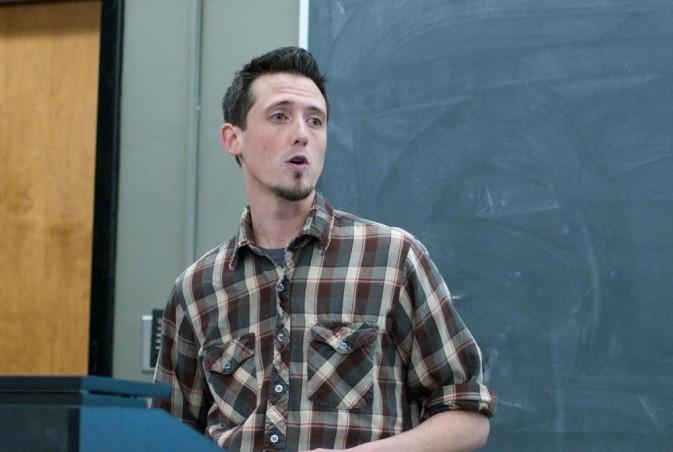By Alyssa Garrison
When Liana Salvador asked RyePRIDE about the transgender community at Ryerson as research for a nursing project, she was met with an unexpected response.
“They told us there was only one out, trans-identified person at the entire university that they knew of,” said Salvador, who is also VP Education at the Ryerson Student’s Union.
Jake Pyne was one of the speakers at Ryerson’s first ever Trans-Action for Community Health forum, which was held on March 7 and was organized by nursing students.
Pyne, a fourth-year social work student who spoke on behalf of Trans PULSE, is well aware of Ryerson’s negligible trans community.
Pyne sat alongside Alan Sears, a Ryerson sociology professor, Charmaine Torres, a Ryerson graduate and nurse at the Hassle-Free Clinic, and Susan Gapka, a well-known Toronto trans-activist.
The four discussed the challenges of making change in an institution like Ryerson, where trans people are often not even recognized.
“Why would Ryerson change policies for a group they don’t recognize exists?” Pyne said.
Trans people are not given the chance to identify as such at Ryerson, according to Pyne. Application forms and other documents require that students identify as male or female.
“Ryerson needs to start counting trans people,” he said.
Another recurring theme at the forum was the need for inclusion of trans people in the Ryerson curriculum.
The solution, according to Sears, is not to offer a single course on trans issues, but to make all courses more trans-inclusive. This would mean rethinking the curriculum in most programs, especially those dealing with biology, anatomy and healthcare. Though it could be a lot of work, Sears believes changing course content is an important step toward making Ryerson a safer, more inclusive place.
“There’s many people of good will out there who have prejudices because they just don’t know,” he said, “We need to challenge again and again to de-normalize.”
The nursing faculty’s lack of information on trans people was of particular concern at the forum.
The students behind the forum felt the brief amount of time they spent learning about queer and trans patients—about four days in total—was simply not enough.
“There’s a lack of awareness about what trans even means,” said Salvador. “We don’t know what to say in a health interview with a trans person.”
As a university in Toronto, a city with one of Canada’s largest trans populations, Ryerson is already taking steps towards creating a more trans positive campus. For example, the planned inclusion of gender neutral washrooms in the new Maple Leaf Gardens complex is a step in the right direction, Pyne said.
According to Sears, the biggest changes must come from within the student body.
“If you don’t change the system you get caught in the masses,” he said.
Photo by: Lindsay Boeckl













Tatjyana Novikova
I’m taking social work and we are in real need of some trans-inclusive curriculum. The department prides itself on anti-oppressive practice and a policy of inclusion, while I feel completely invisible as a trans woman. We get some inclusion on a case by case basis (if the professor is kind enough to teach about trans issues) but it doesn’t reach many students.
It would be nice to feel represented. If Community Services wants to educate us on and teach us to work with so many different communities, trans issues really should be included.
Jake Pyne
Thanks for printing an article on such an imoportant topic, however I would like to clarify that I did not say that I am the only trans person at Ryerson. This is very much not the case. I can think of many out and active trans students at Ryerson. I likely said that I was not aware of an active trans community on campus, which is true.
In addition, I was not asked to speak simply because I am trans… I was asked to speak on behalf of Trans PULSE, a research project I am part of. I would appreciate it if this would be changed to better reflect what was said. Thank you again for your otherwise excllent article on this topic.